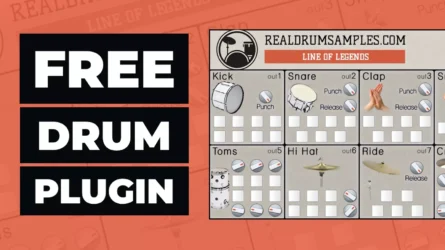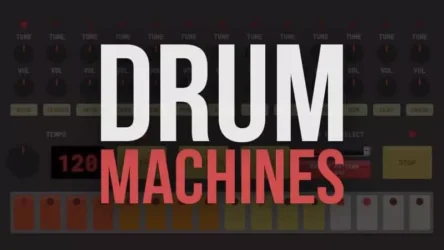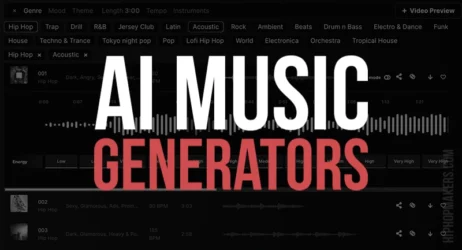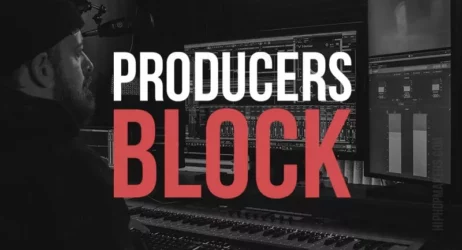This guide will answer what is BMI Music, what BMI does, how much it costs, and how it works. If you want to earn royalties, it is important to learn about BMI.
- What Is BMI Music
- What Does BMI Do for Artists
- How Does BMI Work for Music
- ASCAP vs. BMI
- What Is BMI Repertoire
- How Much Does BMI Cost
- What Is A BMI Music License
- Who Pays More, BMI Or ASCAP
- Where Is The BMI Login Page
- Does BMI Have A Mobile App
What Is BMI Music?
BMI stands for Broadcast Music Inc. They are a performing rights organization that collects license fees from businesses on behalf of song composers, writers, and performers who utilize their music. The fee collected by BMI is later distributed as royalties to its members.
BMI Music was founded in early 1939 by some of the leading people from the radio industry. It has been running successfully for the past 80 years in the U.S. and is a well-known music licensor.
It is a non-profit organization, and its rise in popularity and fame is quite fascinating and enduring. This organization initially began when the artists were underpaid for their jobs and were rarely paid for their live performances.
The ASCAP (American Society of Composers, Authors, and Publishers) was the most reputable performance rights organization back then in the U.S. BMI was founded to support all those finding it challenging to pay a steep fee charged by ASCAP license an artist’s song.
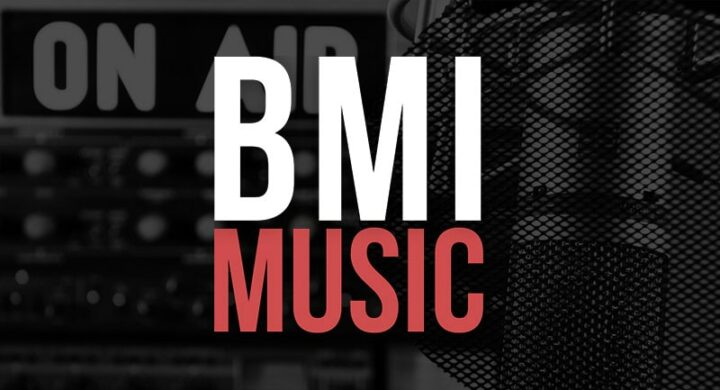
The initial founders of BMI were also members of the National Association Broadcasters, and they were well aware of how the music industry was falling apart with ASCAP. Hence they came up with a solution to build a cost-effective alternate to ASCAP.
The competence between ASCAP and BMI still lives today, even when BMI produces new talents and music one after another.
Performance right organizations are kinds of societies or companies that offer arbiter functions to publishers and songwriters. Such organizations aim to find and gather performance and mechanical royalties from businesses and individual people who utilize an artist’s music to gain profit in the market.
The artists then receive a payment based on the revenue collected by these organizations. Famous singers like Ed Sheeran, Lil Wayne, Taylor Swift, and Rihanna are represented by BMI.
BMI represents the central part of the American Academy of Arts and Letters’ prestigious members, including 31 Pulitzer Prizes for Music winners.
BMI also extended its partnership with the largest music festival producer in the world by renewing its contracts.
The license issued by BMI offers businesses to use music with legal authority. A legal agreement saves your business from any penalties in the future. This feature allows music users to save time and money searching for a songwriter or a composer. Once you pay your required fee, it will ensure music creation for you and your businesses.
What Does Broadcast Music Inc Do for Artists?
BMI acts as a connecting line between the artists, organizations, and businesses interested in commercially playing their music. BMI supports and values music and all the previous work done in the musical field.
As for now, BMI is helping 1.1 million songwriters, and it is currently securing about 17 million compositions. Michael Jackson’s music catalog and SONY Music Publishing are some of its secured treasures as they feature the top music of the late artists.
BMI supports and becomes the backbone of its publishers, songwriters, and composers by taking hold of the most crucial aspect of their career, i.e., to get paid.
BMI assists businesses and organizations that perform music in public by providing blanket music licenses to achieve over 18.7 million musical compositions. Both relationships save time and money for each other.
How Does BMI Work for Music?
BMI aims to bring music and businesses together. It exemplifies the performance rights, whereas the composers, songwriters, and music publishers work on their craft.
BMI uses a mixture of station reporting and digital monitoring, requiring licenses to record the songs they play for some time every year. BMI gets the data together by combining it with digital tracking of radio station plays to get an idea about whose songs are the most running.
BMI stands strong when talking about the “BIG THREE’S” of the PRO music scene. Songwriters can join BMI for free, whereas individual publishers pay $150, and companies and businesses spend $250. BMI has a lot of benefits for its members.
It provides songwriting camps for musicians, discounts for several songwriting apps, video games, services, and much more. It also offers exciting workshops for musicians.
What Is the Difference Between ASCAP & BMI? ( ASCAP vs. BMI )
BMI has become the biggest of the three PROS with time. It has become the first and foremost choice for most producers and songwriters because of the opportunities and benefits.
On the contrary, ASCAP is the oldest known PRO in the United States, and it was founded in early 1914. Both ASCAP and BMI have a challenging competition as it has 12 million works registered under its name with more than 800,000 members from all over the world. Celebrities like Justin Bieber and Ariana Grande are also members of ASCAP.
ASCAP members need to pay the one-time registration fee for joining the organization, and then the contracts are renewed with any additional cost every year. The price of ASCAP is not as high as BMI, but it also requires the publishers and businesses to pay the fixed registration fee.
BMI decides the time period of its contracts to be two years, while ASCAP has only one-year agreements with the artists. Thus, if you’re not looking for a long commitment, then BMI is not the one for you.
Related: What is ASCAP
What Is BMI Repertoire?
The term “BMI Repertoire” refers to musical works for which BMI may possess or control the authority to give public performing rights licenses at the time of the Station’s performance.
The work done by the BMI publishers stays in its repertoire for as long as the publisher maintains his association with BMI and does not misplace or mishandle the results.
BMI still licenses performances of the piece for certain music users since we have a definitive agreement with the music consumer (a license in effect) before the lyricist/publisher’s resignation. BMI offers a free platform on its website known as Songview with a number of musical works.
It is a first-of-its-kind collaboration that will provide a complete vision of ASCAP and BMI’s repertory records, as well as a more comprehensive look at song ownership information from the nation’s two leading performing rights organizations.
How Much Does BMI Cost?
If you’re an artist, BMI is free for you! You can register your songs with BMI without any cost. However, you must register your work as early as possible because you won’t get any revenue without registering when playing your music.
Where many performing right organizations gather annual dues, BMI doesn’t involve itself in this hectic task.
However, it asks to pay the one-time hassle-free application fee of $150 for registration that will be owned by an individual and $250 for a well-established company that can either be a corporation or a partnership.
People need to remember that the fee cannot be refunded or deducted from their future earnings in any situation.
What Is A BMI Music License?
You can never fulfill your dream of playing your music publicly without a license, and all kinds of copyright issues will arrive at your door once you try to do so. Copyright rules compel music users to obtain authorization from songwriters and composers, who might charge a fee before playing their music publicly, allowing them to continue creating music.
A BMI music license allows businesses to deal with the legal authorization and have a right to perform the music affiliated with BMI.
The entire agreement of licensing is meant to protect and secure the property of the music creator. Thus, it helps preserve an artist’s business from any external penalties concerned with copyright issues, etc.
BMI provides unlimited access with only one agreement to more than 17 million musical works produced by about 1.1 million songwriters, composers, and publishers affiliated with BMI.
Who Pays More, BMI Or ASCAP?
The Internet has different answers for a single question, and this is what happens when the question arises about who pays more?
Many people prefer ASCAP as they say it is a better choice for artists and bands, while on the other hand, BMI collects performance royalties way better than ASCAP for music production broadcast on T.V. and film.
However, there’s no fixed answer because these organizations keep changing their ways and dynamics to deal with the artists.
Shawn K. Clement, a songwriter from BMI says:
“It seems like BMI gets behind your career more, and it’s more of a family feeling.”
Thus, now you can judge better for yourself and choose the organization that can be a complete package for you, just like BMI is for Shawn. It not only boosts careers but also gives a friendly family vibe too.
Where Is The BMI Login Page?
You can visit www.bmi.com and click login in the header or footer of the website for a login overlay window to pop up. Then enter your login details to access your account.
Does BMI Have A Mobile App?
Yes, BMI does offer a mobile app for both iOS and Android devices. The mobile app gives you access to BMI Live, Works Catalog, Find Venues, and more. Visit bmi.com/bmi_mobile for more details.
Summary of BMI Music
The Broadcast Music Inc. (BMI) organization collects license fees from businesses on behalf of the song composers, writers, and performers who use their compositions. BMI distributes its members’ royalties as a result of the fees it collects.
BMI Music is a key player in the music industry. As a performance rights organization, it serves a crucial role in helping music creators, like composers and music publishers, collect royalties. By joining BMI, artists, and publishers can earn performance royalties whenever their music is played on radio stations or during stage performances.
ASCAP Music, like BMI, is another significant performance rights organization. They both work to collect royalties, but the licensing fees and ASCAP contracts might differ from those of BMI. Also, ASCAP required radio stations to secure ASCAP licenses for playing music registered with them. But, remember that these royalties aren’t just performance royalties, they also include those from radio plays and other public performances.
Joining BMI Music is a common step for many in the music industry. The record company you sign with, or independent publishers, may recommend you to join BMI Music. Once you become BMI Music members, BMI pays you for the performances of your music. Remember, the amount depends on how much music is performed and its popularity.
There’s a common misconception that BMI Music and ASCAP are rivals. They are, in fact, both non-profit organizations aiming to serve music creators. It’s not a matter of BMI vs. ASCAP, but rather which organization best suits your needs as an artist or publisher. For example, BMI has been known to stand out for supporting country artists.
Understanding these organizations can be a bit complex. Publications like the American Songwriter Magazine often provide insights and updates about them. They cover topics from BMI licensing to how BMI and ASCAP are making a difference for artists. In essence, both BMI and ASCAP strive to ensure fair payment to those who bring music to our lives.
I hope we have successfully answered what is BMI music, and you now have a better understanding of how the organization works.

